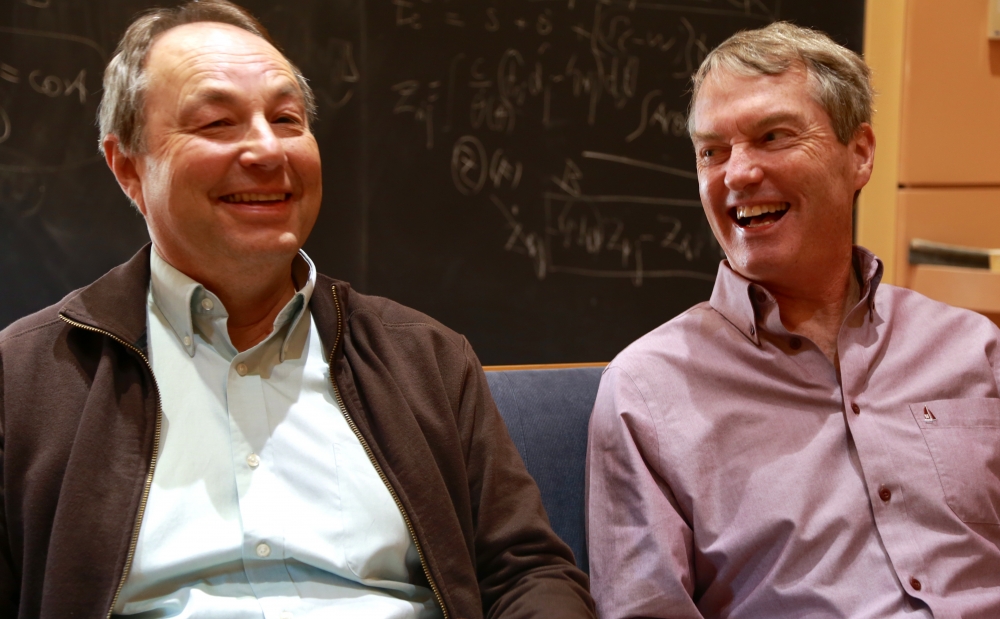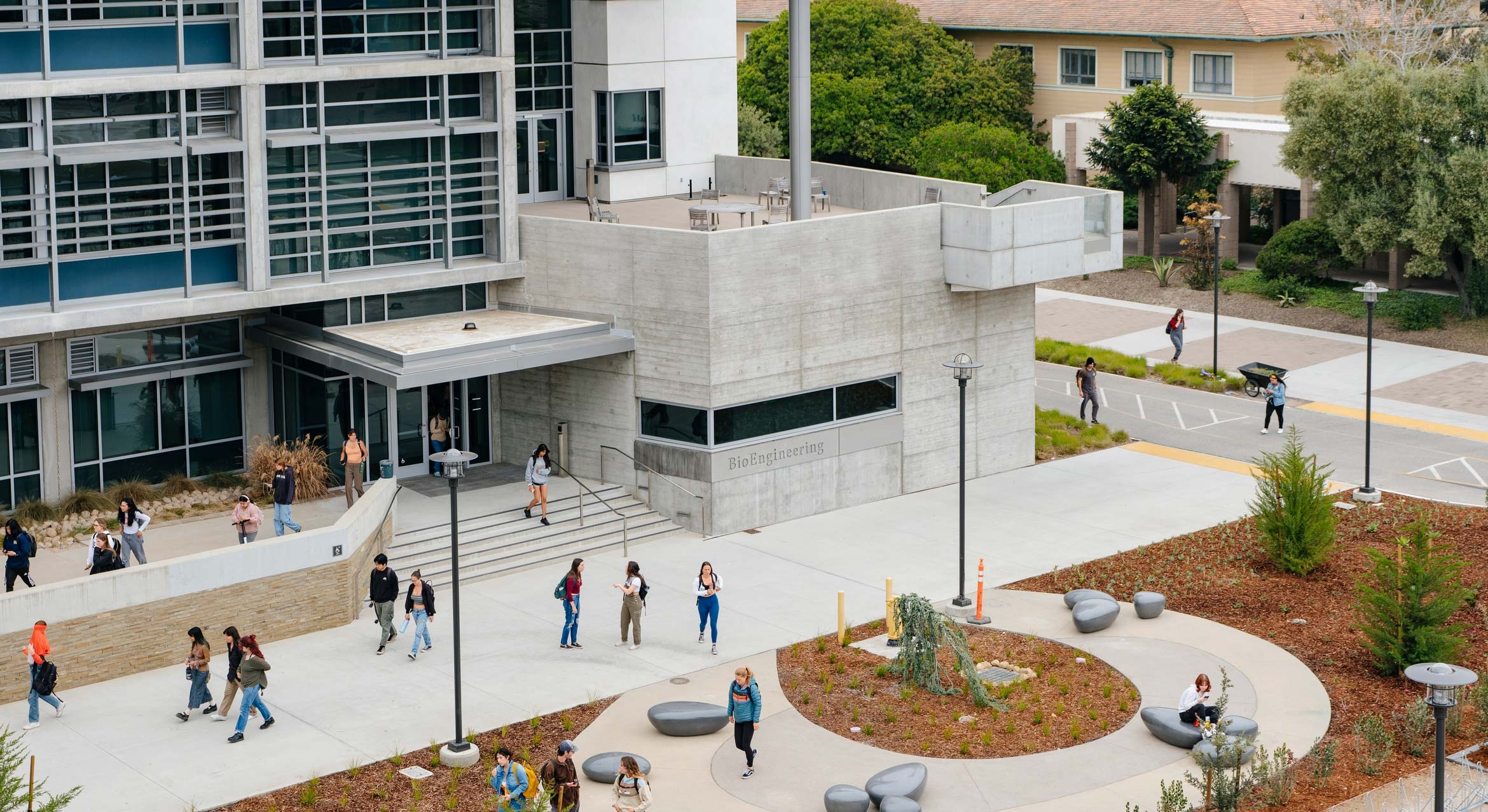
Questioning Einstein
Could Einstein’s theory of relativity be wrong? That’s among the burning questions being asked by theoretical physicists today. It’s a startling claim and one that has received a lot of attention from other scientists.
Researchers from UC Santa Barbara's Department of Physics and the Kavli Institute for Theoretical Physics (KITP) have received a $1.32 million dollar grant from the National Science Foundation (NSF) to continue their work on finding an answer. A group of five professors has been collaborating for many years on a variety of theoretical pursuits pertaining to high-energy physics — everything from massive computer simulations of particle physics to dark matter and neutrinos. Two of them focus their attention on string theory and quantum mechanics, the latter of which conflicts with Einstein’s theory when applied to black holes.
“This is one of several directions the grant will support,” said principal investigator Joseph Polchinski, a professor in the Department of Physics and a permanent member of the KITP. “A large part of the funds will be used to train young people. Over the three-year term, four graduate students and three postdoctoral scholars will be subsidized.”
The award will also support research aimed at understanding the basic building blocks of matter and the fundamental laws governing nature through a variety of approaches. Polchinski and Nobel laureate David Gross, a professor in the Department of Physics who holds the KITP’s Frederick W. Gluck Chair in Theoretical Physics, largely focus on the construction of a unified theory of gravity and the particle interactions, based on string theory and related ideas. Specific approaches include the study of quantum mechanical properties of black holes, the emergence of space-time from a more fundamental theory and the understanding of higher symmetries that appear in these theories.
Robert Sugar, professor emeritus and research professor in the Department of Physics, investigates the properties of strong nuclear interaction using large-scale computation. His work is directed at testing the existing standard model of particle properties and the search for new physics. Physics professors Mark Srednicki and Anthony Zee study models of known and new particles, including neutrinos, supersymmetric particles and dark matter.
These are all areas where a host of experiments will continue to report new results — from the Large Hadron Collider and Fermilab to a variety of deep-mine and space-based observations. The members of the group are broad in their interests and work on other areas as well, including nonequilibrium dynamics; quantum chaos and its connections with mathematics and physics; new methods and applications in quantum field theory (the basic mathematical framework for quantum physics); and the understanding of the cosmological constant, which drives the accelerating expansion of the universe.
“UCSB in general and KITP in particular are outstanding in the field of high-energy physics,” Polchinski said. “We’ve been at the center of both the experiments, such as the discovery of the Higgs boson, and the theoretical side with the KITP. It’s natural that we should be successful in getting this NSF grant because the general scientific environment here at UCSB is tremendously stimulating. It’s a very good place to work.”



